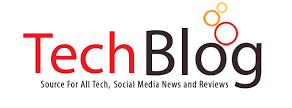In today’s digital age, the rise of remote work has transformed the traditional workplace landscape, allowing employees to work from anywhere in the world. While remote work offers numerous benefits, such as flexibility and increased productivity, it also presents unique challenges for employers in balancing trust and technology. A staggering 40% of the world’s workforce now works remotely.Finding the right balance between empowering employees with technology and maintaining trust in a global remote work environment is crucial for success. Here’s how businesses can navigate this delicate balance:
How to Balance Trust and Technology in a Global Remote Work Landscape
Embrace Technology as an Enabler
Technology plays a pivotal role in facilitating remote work and enabling employees to collaborate effectively across geographic boundaries. From video conferencing tools to project management platforms, businesses have access to a wide range of technologies that can empower remote teams to communicate, collaborate, and innovate. Embracing technology as an enabler of remote work allows businesses to overcome geographical barriers and leverage the diverse talents of a global workforce.
Foster a Culture of Trust
Trust is the foundation of any successful remote work arrangement. Employers must trust their employees to perform their duties responsibly and effectively, regardless of their physical location. Likewise, employees must trust their employers to provide the support, resources, and flexibility needed to succeed in a remote work environment. Fostering a culture of trust requires open communication, transparency, and mutual respect between employers and employees. When employees feel trusted and valued, they are more likely to demonstrate accountability, initiative, and dedication to their work. Use reliable tools for online workforce surveillance.
Implement Transparent Communication Channels
Transparent communication is essential for building trust and maintaining alignment in a global remote work landscape. Employers should establish clear channels of communication that enable employees to stay connected, informed, and engaged regardless of their location. Regular team meetings, virtual town halls, and instant messaging platforms can facilitate open and transparent communication among remote teams. By keeping employees informed about company goals, initiatives, and expectations, businesses can ensure that everyone is on the same page and working towards common objectives.
Provide Training and Support
Transitioning to remote work requires employees to adapt to new technologies, workflows, and communication norms. Employers should provide comprehensive training and support to help employees navigate the challenges of remote work effectively. This may include training sessions on remote collaboration tools, time management techniques, and best practices for staying productive while working from home. Additionally, businesses should offer ongoing support and resources to address any technical or logistical issues that may arise during remote work.
Balance Monitoring with Respect for Privacy
While employee monitoring tools can provide valuable insights into productivity and performance, they must be implemented with respect for privacy and trust. Employers should strike a balance between monitoring employee activities and respecting their privacy rights. Instead of relying solely on surveillance-based approaches, businesses should focus on outcomes and results, trusting employees to manage their time and responsibilities effectively. By prioritizing trust and autonomy, employers can empower employees to take ownership of their work and deliver results without feeling micromanaged or scrutinized.
Balancing trust and technology is essential for success in a global remote work landscape. By embracing technology as an enabler, fostering a culture of trust, implementing transparent communication channels, providing training and support, and balancing monitoring with respect for privacy, businesses can navigate the complexities of remote work effectively. By striking the right balance between trust and technology, businesses can empower remote teams to collaborate, innovate, and thrive in an increasingly digital world.














+ There are no comments
Add yours